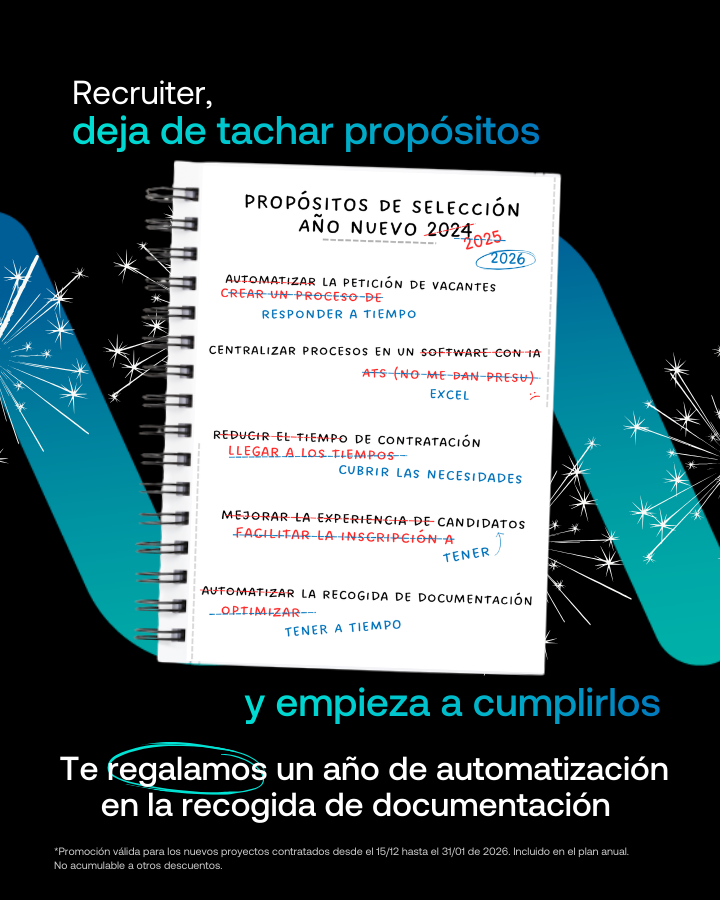Four generations in one team

Different generations, different motivations
Companies are faced with increasingly disparate work teams. Not only because of the age difference between their workers, but also because of the values with which they were born.
Also because of the way of thinking they have developed, the concerns they have acquired or the aspirations they yearn for. Employment and authority do not mean the same thing for those who were born in the post-war period, lived in the midst of a crisis or were raised on the premise that parents are obeyed, as for those who were born in a society with freedom as one of the fundamental pillars.
For the first time, 4 generations work in the same company, the challenge is to achieve not only that they live together in the same organization but also that they understand each other.

Are we facing a real labor revolution?
1. Baby Boomers

The first is named after the characterised birth boom of this period. These are workers who are currently between 50 and 65 years old. They were born with ideals very marked by the demand for human rights and the incorporation of women into the world of work. This group highly values work, perseverance and fidelity.
In addition, they consider their current company to be the only one in their entire professional career. What do they value most? A company that can give them security and stability.
2. Generation X
The majority of the active working population is shaped by this generation, so called because it was born in a period of uncertainty after the Cold War. A large part of this group, made up of people between 35 and 50 years old, are in leadership positions. They don't believe in hierarchies and deal informally with any authority, treating them as equals.
The figure of women in the labor market is already common, although it still occupies a very low percentage, because they like to be independent but, keeping a balance between family and work life. Work is their main focus and they want professional development

within the same company, although not without first reflecting on the changes.
They are selfless, they can work on a project that may not have to do with their position in the company, and they are oriented more on results than on processes. Compared to older employees, they are more comfortable working in mixed groups. In addition, they are quite entrepreneurial and many form their own companies.
3. The Millennials

Millennials or Generation Y, that generation that wants to enjoy work. Professionals between the ages of 23 and 35 were born seeing their parents working tirelessly. However, with the arrival of the crisis of 1990, everything changed.
This generation is characterized by looking for a job that makes them happy. In addition, they are not committed to any organization and are not afraid of a change in work. They like to undertake and make decisions, and they value knowledge over formalities.
Best of all? They adapt to the changing pace of projects regardless of failure. They are also known as digital natives, technology is part of their daily lives: all their activities involve the intermediation of a screen, however, they were not born with it, but from the analog era in which they lived they migrated to the digital world.
Unlike previous generations, the world, due to the economic crisis, requires them to be more prepared to apply for a job, where competition is increasing. Unlike their parents (Generation X), digital natives are not satisfied with what they have lived through and are ambitious to achieve their goals.
However, millennials live by the label of being lazy, narcissistic, and consenting. In fact, Time magazine classified them in 2014 as the yo-yo-yo generation. Members of this generation don't mind sharing information about their salaries, and leaving if the comparison is unfavorable.
4. Generation Z
Finally, the most recent generation is comprised of those under 23 years of age. It is the group that begins (or is about to begin) their working life. His main characteristic is technology and his life revolves around social networks.
Also in training, since they are committed to being self-taught and learning through the Internet. Creative, critical and flexible, they are looking for jobs that are like them and that allow them to work remotely. However, most of them aspire to disassociate themselves from any company and live off their hobbies, setting up their own business. They have a low tolerance for frustration, very little acceptance of failure, and like to be independent. They are multitaskers, but their attention time is very short.
If Generation “Y” is having a hard time finding work, the situation of post-millennials is even worse. They want to work in a company that can meet their high expectations, in relation to the use of technologies and competitiveness. Their mastery of technologies may cause them to neglect their interpersonal relationships more, but they are the ones who give the most voice to social causes on the Internet.
They like to get everything they want immediately, a fact fostered by the digital world in which they are immersed, their lifestyle is also marked by YouTubers.
Without a doubt, Generation Z is achieving something unprecedented in the business environment, and that is to tip the balance between recruiter and employee, making the former have to adapt to the needs and requests of the latter.

The differences are obvious, create united and authentic teams It will make you take out the greater potential of each generation. Unity is strength!
The company you work for, Are you ready to live with all 4 generations?
.jpg)
Fulfill your selection purposes
Recruiter, fulfill your recruitment purposes in 2026 with the help of Velora. And as a gift, a free year on automatic document request.

Related articles
More articles to inspire your HR strategy









